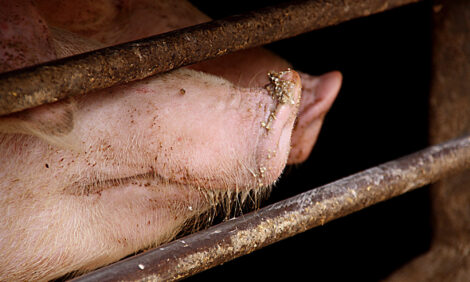



Organic a serious commercial option for NZ food industry
NEW ZEALAND - New Zealand's Minister of Agriculture, Biosecurity Fisheries and Forestry Jim Anderton, gave full backing to the organic food sector at Organics Aotearoa New Zealand's national conference.Addressing the inaugural event, he said the group had achieved significant success, in such a relatively short time. The organisation, formed 14 months ago, is bringing together all the different parts including three of its constituent members: Bio-Gro NZ, the Biodynamic Association and Soil Health.
"This conference marks a coming of age of organic production in New Zealand. Organic production is a serious commercial option," he said.
Sales of organic products are increasing globally by between 10 and 20 per cent each year. The sector accounts for about four per cent of the world's food and beverage market and is estimated to be worth about $40 billion US - and this was particularly true in high value sectors.
"It is probably fair to say that for many of the pioneers of organics in this country it was an interest in environmental issues that got them started. But now, both in New Zealand and internationally, organic production is going from strength to strength," said Mr Anderton.
He believes it presents a very real opportunity for New Zealand's organic producers, both to provide for an increasing demand domestically, as well as for export.
Significant increase
NZ has significantly increased its organic food production. Between 1999 and 2005 the amount of New Zealand land listed for conversion or already certified organic increased by more than 400 per cent and economists have high hopes for continued growth and expansion for the sector.
And the economic incentives are there. For example, between 1996 and 1999; organic kiwifruit averaged a premium of 50 per cent organic sweetcorn 57 per cent ; organic apples reap 100 per cent premium and organic lamb does as well.
"Agriculture, horticulture and forestry together represent eighteen percent of New Zealand's gross domestic product. Our agriculture is the backbone of our economy. More than two thirds of all foreign exchange earnings come from primary industries. No other developed economy is as dependent on exports of primary products as is New Zealand. Our primary industries are actually becoming more, not less, important to us," said Mr Anderton.
However, logistics and global transportation add costs to NZ products and there is mounting competition from emerging nations, such as China and Brazil.
Retaining market share will depend on us developing niche products that command a premium. And we can attract a premium for our quality - for the desirability of produce from the world's freshest and cleanest growing environment and producers with responsible production practices," he added.
World wide there is a growing market for ethically produced food and supermarkets were already demanding sustainable products. Mr Anderton said that New Zealand was in an excellent position to respond.
"We should welcome the challenge, because we have as good a story to tell about our production as any country," he added.
Challenge and investment
The NZ Government has promised further investment in the sector. The Ministry of Economic Development Sector Initiative Fund has already provided seed funding of $1.5 million over three years to assist the development of Organics Aotearoa New Zealand. A further $2.5 million has been made available since year 2000 from the Sustainable Farming Fund to aid projects relevant to the organic sector.
The Government is also actively engaged with an advisory package and will provide $2.2 million over the next three years for an Organic Sector Advisory Programme. A service has now been rolled out across the country, and Task Teams are now working on market access, education, extension and research and communication/advocacy.
A strategy for research and development is also in place, working with research funders and providers, as well as farmers and growers, to ensure that the needs of the science community and grass-roots producers are being met.
"Given the striking growth in markets for organic produce, one of the goals you have as an organisation is to boost the value of the organic sector to $1 billion by 2013. This would require a five-fold increase over six years, so it's ambitious," said Mr Anderton.
The government is also supporting greater research investment as part of the Sustainable Land Management programme and the work on climate change.
"When we look around at the tools we have to mitigate the effects of climate change, there is no doubt that organic production has a role to play. Internationally, research into ways to reduce the environmental footprint of all land-based industries has taken on a new urgency. Organic production is certainly one pathway, but it is not the only one," said Mr Anderton.
Within all sectors of New Zealand agriculture and horticulture there is a general thrust to reduce the use of agro-chemicals. Organic production provides a valuable test bed for learning about many issues involved with minimal and/or nil use of agr0-chemicals that could benefit conventional systems.
Click here to read Mr Anderton's address






